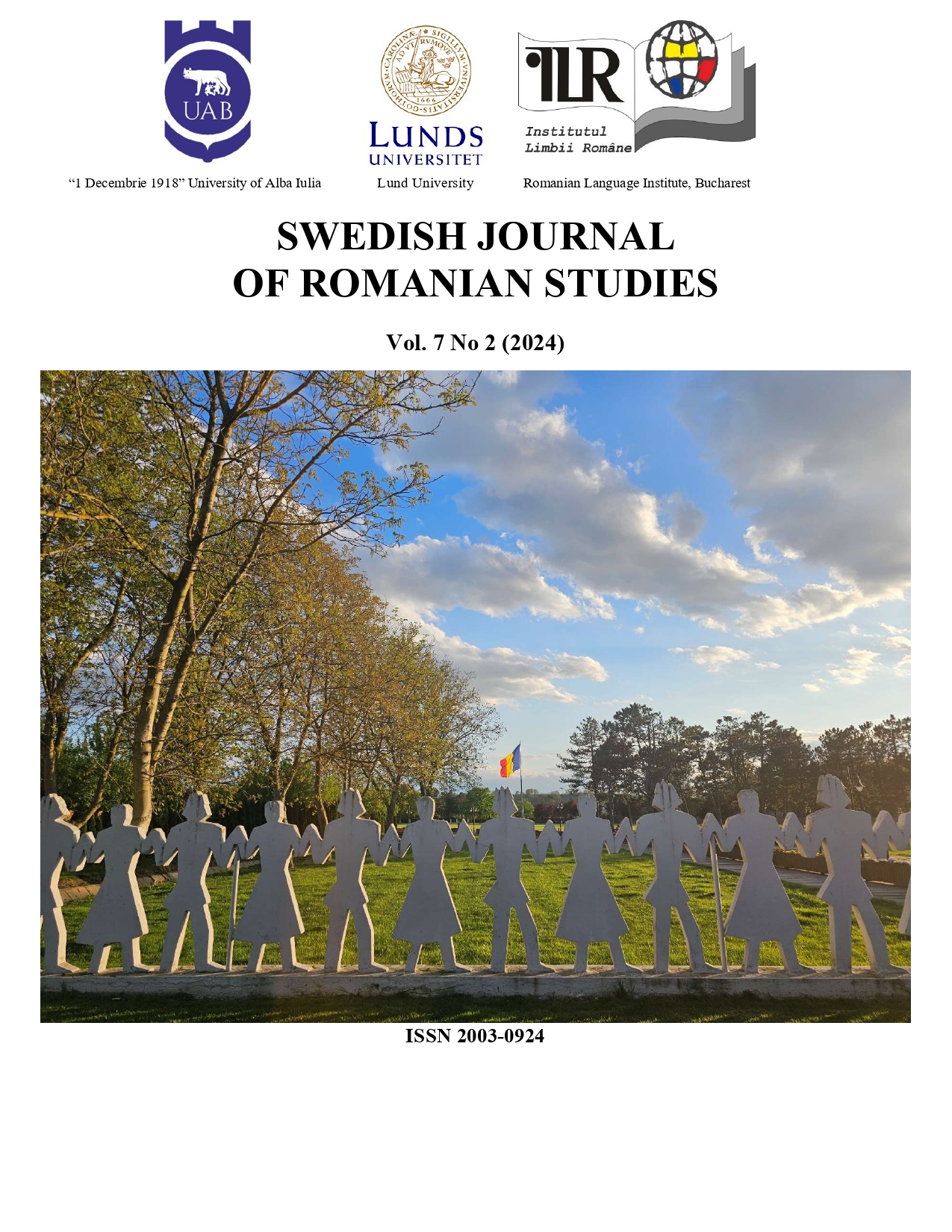The journey to the end of the world under the sign of reconciliation with oneself and the world
DOI:
https://doi.org/10.35824/sjrs.v7i2.26124Keywords:
short story, isolated village, simplicity, the power of faith, Razvan Brudiu, hesychastAbstract
The novella Cînd Nu mai ai pe Cine să Îmbrățișezi [When you have no one to hug], by Răzvan Brudiu, offers a wild and isolated image of a hamlet in the Apuseni Mountains, where old Joseph lives in solitude, strengthened by the power of faith, waiting for the last road to eternity. In the volume we can identify a dialogical construction on the waiting theme, under the sign of silence. If Joseph speaks, it is to banish loneliness, as rarely does anyone cross his threshold, so that in the narrative ego his words and gestures provoke deep meditations on existence. The profile of the central hero is gradually built up through simplicity, modesty, and natural gestures, contrasting with the erudition of the theologian who constantly feels the need to refer to various passages in the Bible, to church events and services, to quotations from the writings of saints or famous writers, etc. Two different worlds emerge from the dialogue between the two protagonists, that of the city, where life is full of daily hassles and worries, where people judge things with a ‘correct’ mind, and the world of old Joseph, for whom time has already become ‘eternity’. These worlds, symbolically confronted, generate meaningful images. The 90-year-old man serenely looks towards death, aware that he does not have much more to expect from life and wishing to be reunited with his wife. He leads a simple life, but his prayer, uttered without worrying about tomorrow, generates in his heart love and longing for the Creator. For him, the end of the world is, in fact, the meeting with God, and everything he does since his wife’s death is a preparation for reaching the final goal, thus becoming an example for everyone who believes in eternal life.
References
Brudiu, R. (2003). Cînd nu mai ai pe cine să îmbrățișezi [When you have no one to hug]. Iași: Editura Doxologia.
Chira, R. (2023), Cuvînt înainte [Forward]. În Incursiuni în imaginar [Incursions into the Imaginary]. No. 14. 2023. pp. 13-16.
Downloads
Published
How to Cite
Issue
Section
License
Copyright (c) 2024 Gabriela Chiciudean

This work is licensed under a Creative Commons Attribution-NonCommercial 4.0 International License.
Authors who publish with this journal agree to the following terms:
a. Authors retain copyright and grant the journal right of first publication with the work simultaneously licensed under a Creative Commons Attribution-NonCommercial 4.0 International License that allows others to share the work with an acknowledgement of the work's authorship and initial publication in this journal.
b. Authors are able to enter into separate, additional contractual arrangements for the non-exclusive distribution of the journal's published version of the work (e.g., post it to an institutional repository or publish it in a book), with an acknowledgement of its initial publication in this journal.
c. Authors are permitted and encouraged to post their work online (e.g., in institutional repositories or on their website) prior to and during the submission process, as it can lead to productive exchanges, as well as earlier and greater citation of published work (See The Effect of Open Access).

